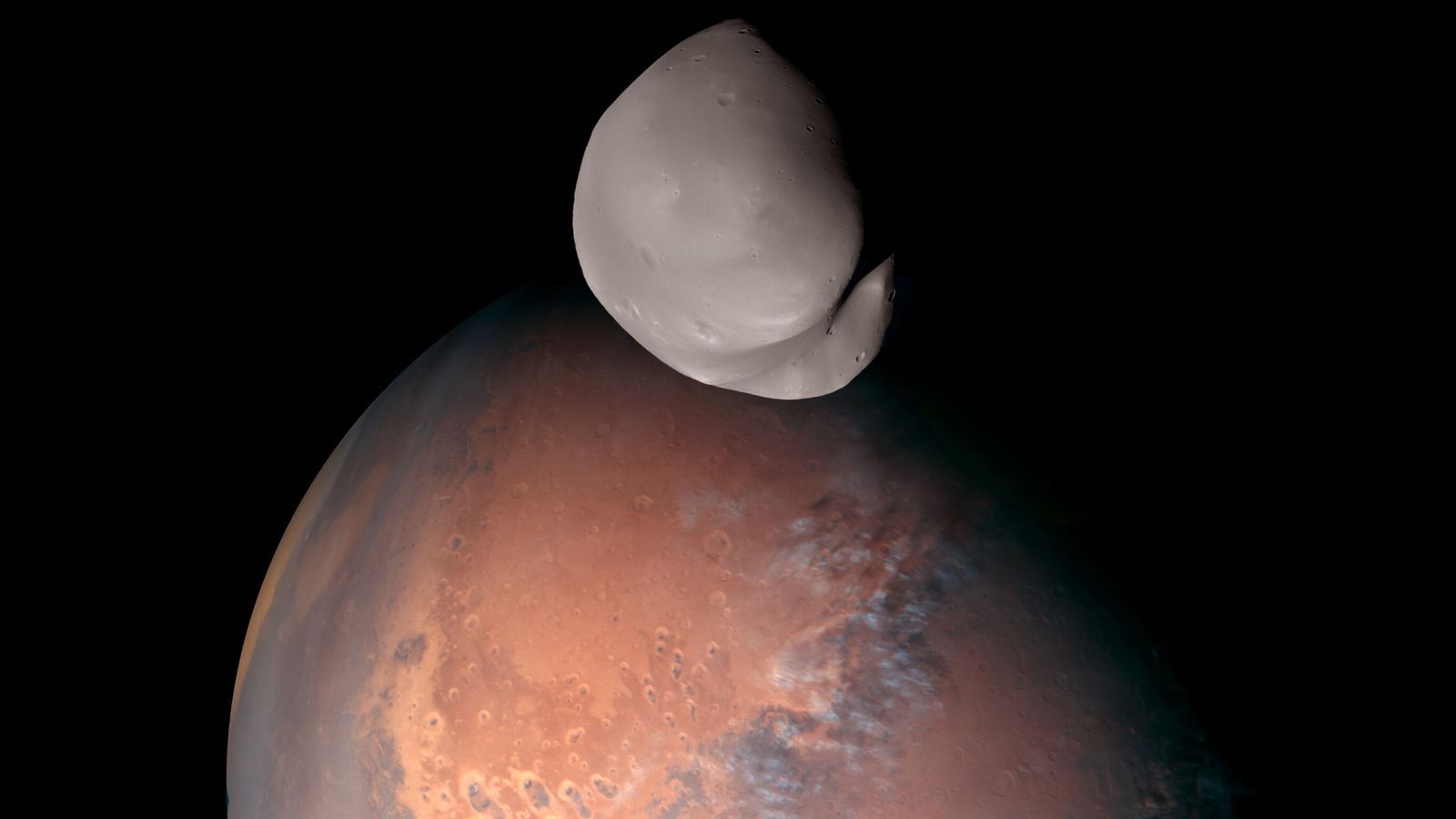The most detailed images of Mars’ moon Deimos have been unveiled after a probe flew just 100km (62 miles) from its surface.
The “unprecedented” high-resolution pictures, captured by the UAE Space Agency during a series of flybys, include a glimpse of areas on the far side of the moon which have never been observed in such detail before.
The moon – which NASA describes as “small and lumpy” – takes 30 hours to orbit Mars and is just nine miles long (15km).
The flyby images are part of the UAE’s wider Emirates Mars Mission (EMM) to study the Red Planet.
It is among a string of countries to plan or launch research missions to Mars in recent years, including China, the US and a coalition of European nations.
Mars has two moons, including the larger Phobos, but scientists’ knowledge of them is limited.
Researchers hope the images, along with other data collected by the probe – including ultraviolet observation of the rocky outcrop and estimates of its surface’s temperature – will help further understanding of the moons, and Mars more broadly.
Hessa Al Matroushi, EMM’s science lead, said the findings challenged the long-standing theory that Phobos and Deimos were originally asteroids captured by Mars’ gravitational forces, and that their characteristics suggested they may instead have had planetary origins.
She said: “How exactly they came to be in their current orbits is also an active area of study, and so any new information we can gain on the two moons, especially the more rarely observed Deimos, has the potential to unlock new understanding of Mars’ satellites.
“Our close observations of Deimos so far point to a planetary origin”.
Read more:
NASA’s new Mars map lets you explore the planet for yourself
New images of Uranus could unravel mystery about planet
The probe has been carrying out flybys of Deimos since January, and came within 100km (62 miles) of its surface last month.
UAE Space Agency described the new images as “unprecedented” and confirmed that the EMM will continue for another year.
The mission aims build the first full picture of Mars’ climate throughout the Martian year alongside other research.

